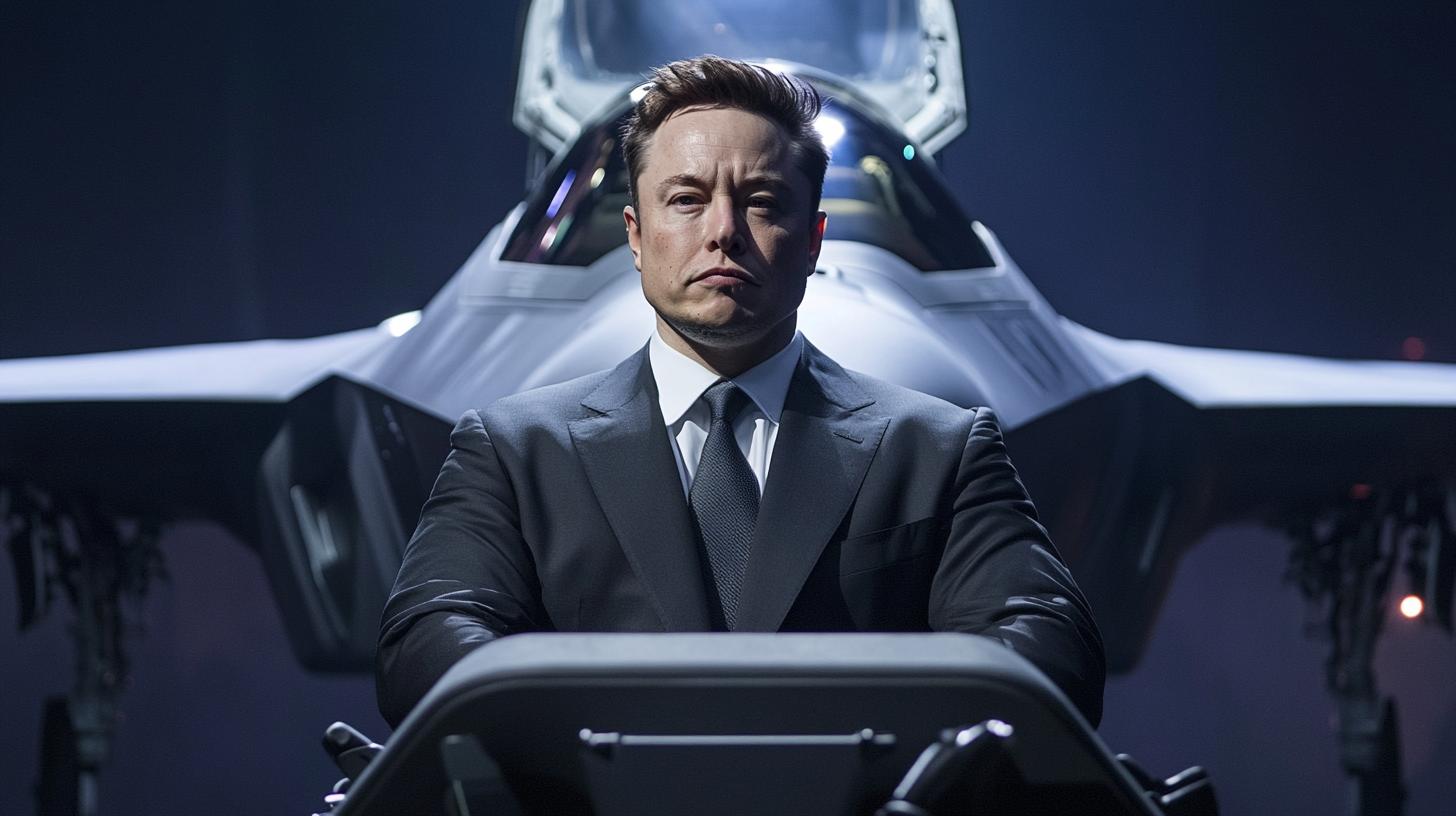A heated debate has ignited over the beleaguered F-35 fighter jet, capturing headlines as tech billionaire Elon Musk and Arizona’s Congressman Greg Stanton clash over its merits and drawbacks. The F-35, celebrated as a pinnacle of military technology yet criticized for its cost and complexity, has become a focal point for fiscal discussions under the new administration.
Elon Musk Challenges the F-35
As part of his new role in President-elect Donald Trump’s administration, Musk has criticized the F-35 program, claiming the jet tried to fulfill too many roles, making it an “expensive, complex jack of all trades.” He argued that such convoluted expectations doomed the jet to fall short of success, pointing out its costly and delayed development.
Stanton’s Defense of Military Innovation
Arizona’s Rep. Greg Stanton, however, jumped to the defense of the fighter jet. He emphasized the importance of the F-35 in training elite pilots at Luke Air Force Base. Stanton argued that Musk’s critiques undermine the base’s vital mission and the advanced technology that supports American military supremacy. Stanton firmly opposes Musk’s proposal to replace fighter jets with drones, a concept he deems imprudent.
Financial and Strategic Concerns
The multi-billion dollar F-35 program has faced scrutiny, with a report revealing its ongoing reliability challenges. Arizona remains a crucial hub for aerospace, drawing massive economic benefits. Yet, the defense sector continues to grapple with balancing advanced military needs and prudent financial strategies.
This dispute between tech innovation and military tradition brings to light differing visions for America’s defense future, shedding light on the complexities of leading-edge technology and national security.
The Future of Defense: Drones vs. Jets and What It Means for Innovation
The Future of Military Aviation: Should We Rethink Fighter Jets?
The recent debate over the F-35 fighter jet underscores a broader conversation about the direction of military technology and spending. While this topic dominated headlines with personalities like Elon Musk and Arizona’s Congressman Greg Stanton weighing in, other aspects of this discussion remain unexplored. How does this affect the broader scope of humanity’s development and technological growth?
The Rise of Unmanned Aerial Vehicles (UAVs)
While the F-35 symbolizes the apex of human-piloted military technology, the rapid advancements in Unmanned Aerial Vehicles (UAVs) could reshape defense strategies globally. Drones offer numerous advantages: lower operational costs, reduced risk to human life, and the capacity for longer, more discreet missions. Their deployment in military operations has already proven effective in surveillance and targeted strikes, potentially reducing the need for traditional fighter jets in certain scenarios.
However, reliance on drones raises ethical questions. Can we entrust machines with critical life-and-death decisions? Should limitations be placed on their autonomous capabilities to prevent potential misuse? These debates are crucial as we advance toward further integration of artificial intelligence in military applications.
Impacts on Military Training and Employment
Shifting focus from manned fighter jets like the F-35 to drones poses significant implications for military training programs and employment. Training elite pilots is a costly and extensive process, integral to facilities like Luke Air Force Base. If drone technology becomes more central, this could affect jobs tied to pilot training and maintenance of traditional aircraft.
This evolution brings into question the future landscape of military employment. Will new roles and skilled jobs emerge within the realm of drone operation and maintenance, or will there be net job losses? How can we equip current military personnel with the skills needed for this technological shift?
Economic and Environmental Considerations
The defense industry plays a vital role in the economy, especially in states like Arizona where aerospace is a key sector. The F-35 program represents a considerable investment, with indirect economic benefits ranging from job creation to regional development. Yet, its environmental impact cannot be overlooked. Fighter jets contribute significantly to carbon emissions and noise pollution.
Drones, by contrast, offer a potentially greener alternative. Typically smaller and lighter, they consume less fuel and produce fewer emissions. But the manufacture and deployment of drones must be managed sustainably to truly realize environmental benefits.
Balancing Cost and Capability
Nation-states face the challenge of balancing cutting-edge capability with financial viability. The F-35 is often cited for its high cost, yet replacing jets with UAVs isn’t without substantial investment and infrastructure changes. Governments must weigh the short-term financial implications against long-term strategic advantages of adopting new technologies.
In a world where defense budgets are scrutinized, what is the optimal allocation of resources between traditional and modern warfare technologies? Is there a hybrid approach that maximally leverages both fighter jets and drones?
Conclusion: Navigating the Future
The dispute between innovation and tradition in military technology offers a glimpse into broader societal challenges around tech integration and its implications. As debates continue, it is crucial to consider the nuanced trade-offs between advancing technology and maintaining reliable national defense.
For further reading and updates, explore credible resources such as Defense.gov and Lockheed Martin to stay informed on developments in the defense industry.







